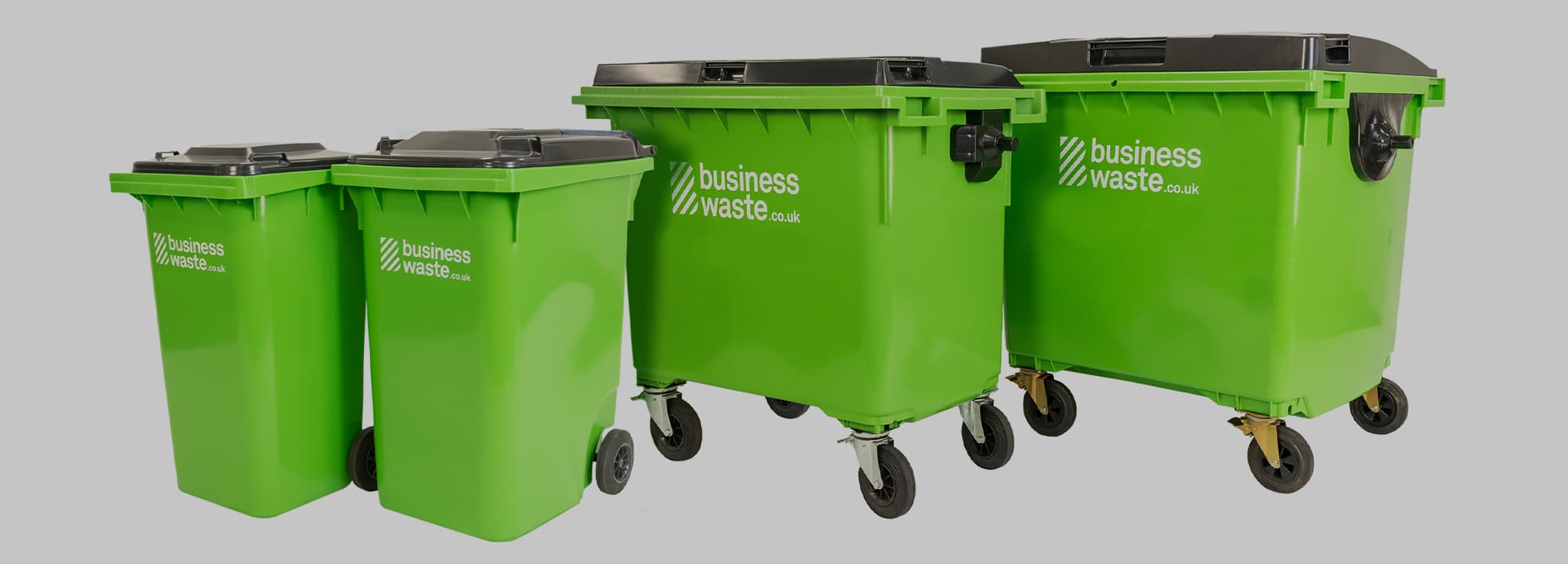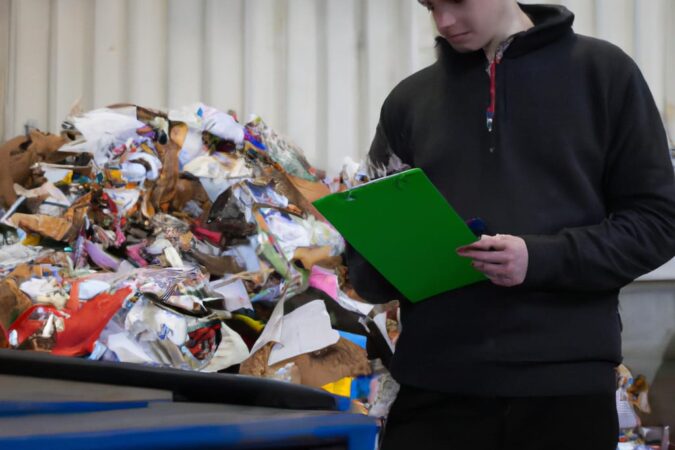
Waste Audit
Waste audits assess your organisation’s waste management processes to identify any problems and work out solutions. Conducting a waste management audit regularly saves your business money by ensuring everything is cost-effective and efficient. Whatever kind of business you run, you’ll produce some form of waste through your daily operations.
As a business owner, it’s your responsibility to put the appropriate measures in place that allow you to manage your waste safely and securely. This includes organising the safe storage and removal of everything from food waste to pharmaceutical waste. One way to help achieve this is by completing a waste audit.
Find out how to do a waste audit successfully with our six-step guide below. Alternatively, ask us about waste audits and arrange a professional waste management audit at your site – call 0800 211 8390 or contact us online.

Arrange a waste audit
Get a fast FREE quote for a waste audit
- Free quote within 1 hr
- Any type of waste
- FREE bins and delivery
- We cover all of the UK
What is a waste audit?
A waste audit – sometimes referred to as a waste stream audit – is an examination of the waste your organisation produces. Auditing waste focuses on the type and volume of rubbish you create during a given timeframe. Waste audits are essentially an inventory of your waste rather than stock.
Typically, a waste audit is completed over one week. This can draw attention to any mistakes you might make when it comes to waste disposal, such as failing to separate specific products. Following this, your auditor or waste consultant can provide you with expert advice to help promote waste minimisation and segregation within your business. This can be achieved by:
- Educating staff on how to segregate waste streams at the point of production and why it’s important.
- Providing and placing appropriate waste containers on site to separate waste at the source.
- Creating a waste management plan that functions appropriately, in accordance with the duty of care standards.
- Implementing changes that cut your waste collection and disposal costs, while reducing the amount of waste you send to landfill sites.
- Improving your commercial recycling with the right bins and collection schedules in place.

How do you complete a waste audit?
A six-step guide
-
Step 1 – Understand your waste
The first step to conduct a waste audit successfully is understanding the different types of waste you produce. This helps you identify certain trends and figure out where you need to cut back. Before you start the waste audit process, write a list of the most common types of waste you produce at your facility. This could include:
-
Step 2 – Set a time
Decide upon a time to complete your waste management audit. Ideally, this should be outside a busy period, as you need to understand what your waste is like in an ‘average’ week. During this time, push back any waste collections until after the audit is completed, as this could interfere with your data.
Once a date and time period for the waste audit is decided, ensure you’ve got all the materials on hand to complete the audit. As you’ll be sorting through your waste, this means you need to get your hands on the appropriate PPE, such as rubber gloves.
-
Step 3 – Analyse your site
The next step in a waste management audit involves analysing your site. Throughout the week, you should pay attention to the following:
- The volume of waste you produce (How many bags are thrown away every day? How often are your internal bins emptied?)
- Where is all the waste stored? (Does it take too long to fill some bins?)
- The types of waste you create (Are some bins being used more than others?)
At the end of the week, it’s time to sort through your waste. The first thing you should do is weigh your waste – as this gives you a clear indication of the amount of waste you typically produce in a given week. You can then use this data to figure out your monthly or yearly output.
-
Step 4 – Sort your rubbish
Start to sort through and separate the waste – taking note of any items that have been improperly disposed of. For example, have recyclable items, such as plastics, found their way into your food waste bin? Seeing where there’s any contamination helps determine if you need additional bins.
Learn more about business recycling
-
Step 5 – Analyse the data
Once you’ve sorted through the waste, you can begin to analyse your data. From this, you should be able to figure out the volume of waste you produce in each of the predetermined categories. You’ll also be able to identify areas of improvement based upon mistakes being made or items that are often disposed of incorrectly.
-
Step 6 – Implement changes
The final step to complete a waste audit is implementing appropriate changes. This could include:
- Increasing the number of bins you have on site, ensuring that they’re colour-coded.
- Adding extra signs to your bins, minimising the risk of items being thrown away incorrectly.
- Altering your waste management plan, and ensuring employees are aware of all changes.
- Finding a way to reduce the amount of waste you produce.
Waste audit FAQs
-
Why conduct a waste audit?
Conducting a waste audit is good for the environment. You can work out which types and sizes of recycling bins would benefit your business. It ensures as much rubbish as possible is recycled from your organisation. This reduces the amount of waste sent to landfill sites and the energy and resources required to create new products.
Once a waste audit has been completed, we’ll provide you with the resources you need to take on a more environmentally friendly approach to waste disposal. For example, we can provide you with a range of colour-coded bins. These make separating waste easy and reduce the chance of waste ending up in the wrong place.
You can reduce your waste management costs with a waste audit too. Whenever you send business waste to a landfill site, you must pay an additional tax on top of normal landfill fees – a landfill tax. Reduce how much landfill tax you pay by finding new ways to minimise the amount of waste you send to landfill, such as implementing a strict recycling policy.
You can boost your company’s reputation. With environmental agencies often dominating the news, a new trend has been born amongst consumers. This means customers are more likely to purchase products from companies that demonstrate a clear commitment to protecting the environment. It’s not enough to just say you care about the planet – it must be reflected in the work you do.
-
How do you conduct a food waste audit?
Many businesses produce large amounts of food waste every day. This includes:
If you work within the food service industry, you may also need to complete an additional food waste audit. This is similar to a normal waste management audit but with the focus purely on the waste food your organisation generates. Here’s how to conduct a food waste audit:
- Choose a time or date to complete your audit. Food waste audits are typically completed on a shorter timescale (three to five days), to account for health and hygiene regulations.
- Food waste can be split into three categories. This includes:
- Food prep (fruit and vegetable peelings).
- Plate waste (food leftover by customers).
- Spoiled food (unsold products and expired food).
To better manage your waste across all categories, use three separate bins throughout the auditing process. This allows you to figure out where most of your waste comes from.
- After completing a food waste audit, analyse your data. You should calculate/weigh the amount of waste food you produced in each category and figure out what changes need to be made.
- Implement positive change. Once you’ve addressed the issues you face, you can move towards enacting changes that could save you valuable time and money. For example, you can reduce the amount of spoiled food waste you produce by:
- Keeping records of when products are bought, and their corresponding use-by dates.
- Sourcing products with a longer shelf life.
- Managing your stock and only buying exactly what you need.
- Predicting your customer’s purchasing habits (figuring out when certain items are more likely to be purchased).
-
Why should I use Business Waste for a waste audit?
At Business Waste, we can do the hard work, so you don’t have to. This means you can focus on running your business, while we conduct a thorough waste audit of your site. Our experts will assess your operations, provide you with their findings, and advise on changes to improve your commercial waste management.
However simple or complicated your waste requirements are, we can manage every aspect for you after completing a waste audit. This includes providing free bins and containers to store any type and amount of waste on your site safely, through to collection, recycling, and disposal of all your waste.
Get a free quote for waste management services anywhere in the UK today – call 0800 211 8390 or contact us online.
Get a FREE quote
Get a fast FREE quote for your waste audit and collection
- Free quote within 1 hr
- Any type of waste
- FREE bins and delivery
- We cover all of the UK